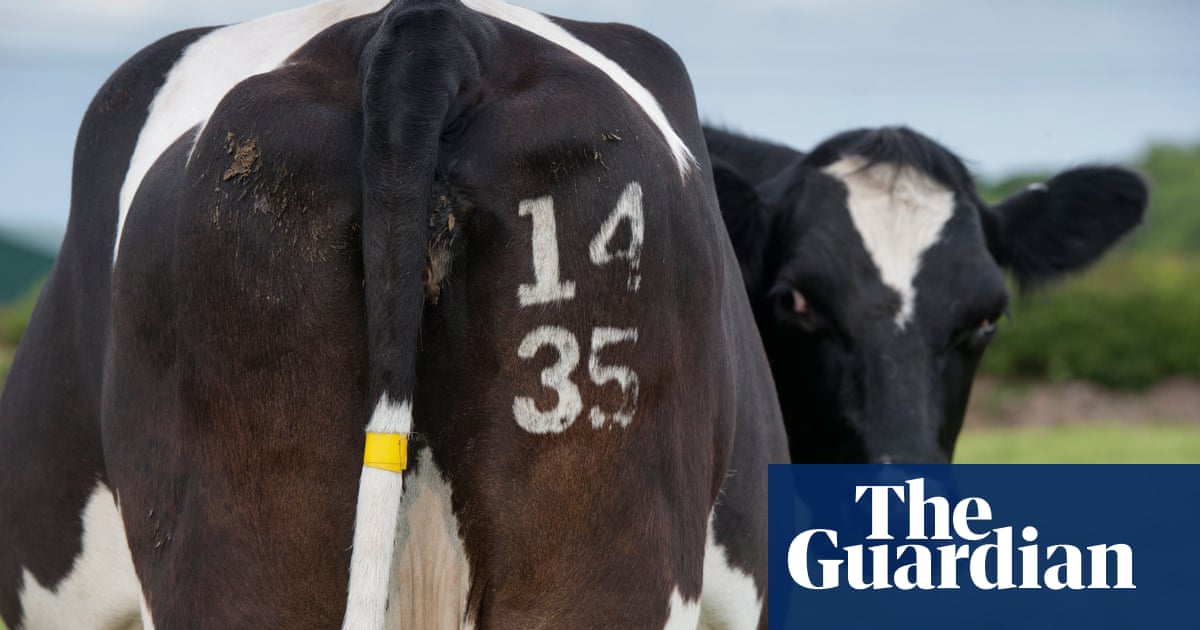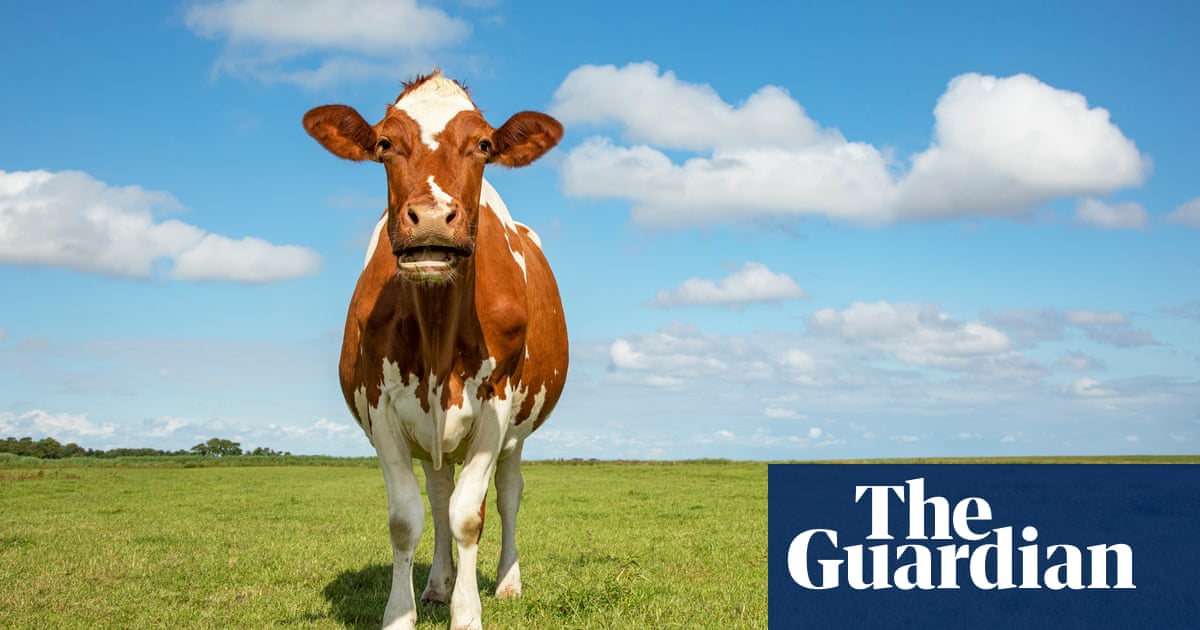Farmers in Denmark will have to pay for planet-heating pollutants that their cattle expel as gas, after the government agreed to set the world’s first emissions tax on agriculture.
The agreement – reached on Monday night after months of fraught negotiations between farmers, industry, politicians and environmental groups – will introduce an effective tax of 120 kroner (£14) per ton of greenhouse gas pollution from livestock in 2030, which will rise to 300 kroner per ton in 2035.
The revenues are to be pooled in a fund to support the livestock industry’s green transition for at least two years after the tax comes into effect.
“We are writing a new chapter in Danish agricultural history,” said the farming minister, Jacob Jensen.
Agriculture is responsible for about one-third of planet-heating pollution – about half of which comes from animals – but lawmakers have so far been reluctant to rein in its emissions. Angry farmers have brought traffic to a standstill in European capitals several times this year, in sometimes violent protests that forced EU leaders to water down rules designed to clean up the sector.
Last week, New Zealand scrapped its world-leading plans to tax its agricultural emissions from 2025 after resistance from farmers.
Nicolai Wammen, Denmark’s finance minister, said the agreement was an investment in the future of agriculture. “We know that a CO2 tax model aligned across all sectors gives us the lowest societal costs in total. What we have now done, from industry sectors to agriculture, shows us that an ambitious green transition is possible.”
Denmark is one of Europe’s biggest producers of pork and a significant producer of beef and milk.
Ruminant animals such as cattle and sheep release vast amounts of methane when digesting food. The gas, which is also released when extracting and processing fossil fuels, heats the planet about 80 times more than carbon dioxide over a 20-year period, but does not last as long in the atmosphere.
The proposed Danish tax on agricultural emissions is below levels that experts say would reflect the social cost of emitting a ton of greenhouse gas, but may still spur shifts to cleaner farming practices. Under the EU’s emissions trading scheme, which does not cover agriculture, the price of emitting a ton of carbon dioxide has ranged from €50 to €100 over the last three years.
Prof Mark Howden, director of the Institute for Climate, Energy and Disaster Solutions at the Australian National University, said “the world can no longer afford to ignore” emissions from the agri-food sector. “The solutions needed to make a significant cut in agriculture’s climate footprint already exist – but financial incentives like the Danish tax could assist them being implemented at scale,” he said.
The agreement, which must still be voted on by lawmakers, is expected to cut CO2 emissions by 1.8m tons in 2030. It includes the creation of a 40bn-kroner fund to protect nature, restore degraded ecosystems and create forests and wetlands.
“This is a historic compromise that sets a completely new direction for land use,” said Maria Reumert Gjerding, president of the Danish Society for Nature Conservation. “Despite major disagreements, we have managed to reach a compromise on a carbon tax that paves the way for a transformed food industry – also beyond 2030.”



